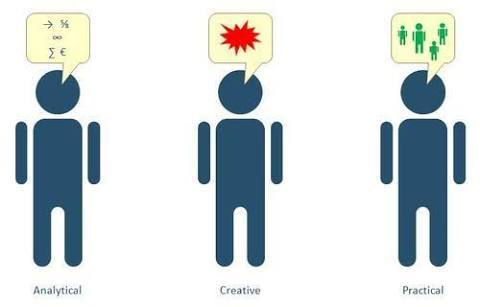Cognition, Memory, and Intelligence
This section discusses the nature of cognition and metacognition, its underlying mechanisms, and how it contributes to one’s sense of self. This further tackles the mechanism of human memory and the different types of human intelligence.
Cognition
People are born with innate capabilities that empower them to manage themselves in various settings and situations.
Cognition is a crucial part of an individual’s development process which influences behavior, just as how behavior also impacts it, assuming bi-directional connection. The way information is taken in and how it is analyzed and processed is a function of human cognition.
Cognition is defined as the complex array of mental processes involved in remembering, perceiving, thinking, and how these processes are employed (Ashcraft & Radvansky, 2010). It is an umbrella term to cover all high-order thinking processes.
Memory
If cognition covers all higher-order thinking processes within an individual, a major focus of its study is the function of memory. It is the faculty of the mind through which information is acquired and retained for later use.
Memory functions in 3 levels:
Sensory memory is the level that allows information from the external environment to be perceived by an individual through senses, usually in the form of chemical and physical stimuli, often with focus and intent.
Short-term, working memory is where information is temporarily stored, where information is simultaneously remembered and is in a readily-available state, typically from 10 to 15 seconds, up to one minute. It can store up to 5-9 items after which information is discarded if there is no conscious and deliberate effort to retain it.
When there is a deliberate effort to store information and it is done consistently and with practice, then this information is transferred to long-term memory. Information stored in long-term memory is often permanent and allows for repeated retrievals across situations.
Intelligence
The term is referred to as an individual’s capacity for understanding, learning, planning, and problem-solving with logic, creativity, and self-awareness.
It is characterized as the application of knowledge to be able to adjust to the environment.
It is the process of applying knowledge in the proper context whenever the need arises.
A number of theories have already been presented regarding intelligence.
Howard Gardner’s theory of Multiple Intelligences
Robert Stenberg’s Triarchic theory of intelligence
According to Sternberg (1895), intelligence is defined as “a mental activity directed toward purposive adaptation to, selection and shaping of, real-world environments relevant to one’s life.”
Both the theory of multiple intelligences and the triarchic theory of intelligence explain the nature of intelligence and the personal and environmental factors that shape it.